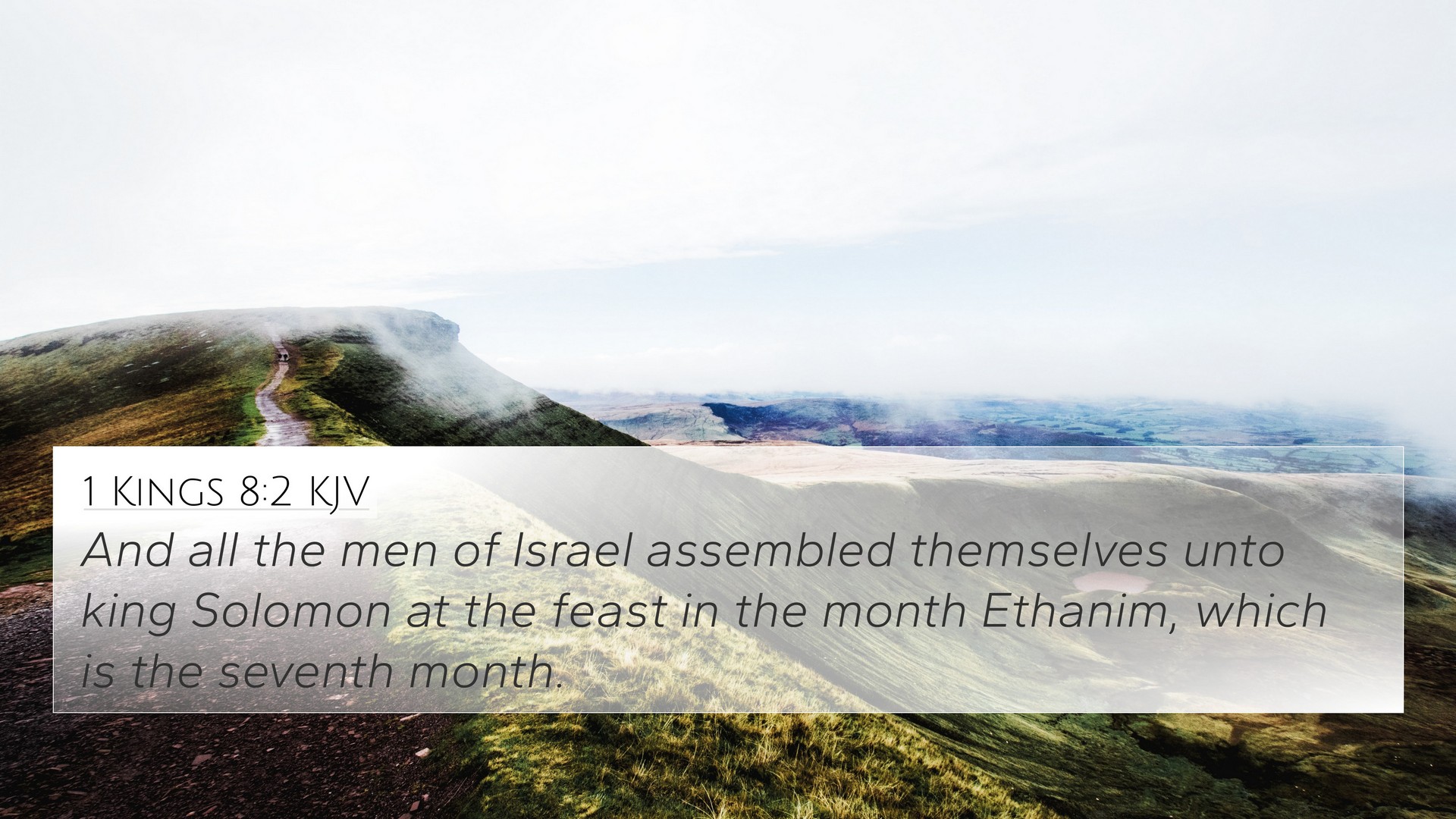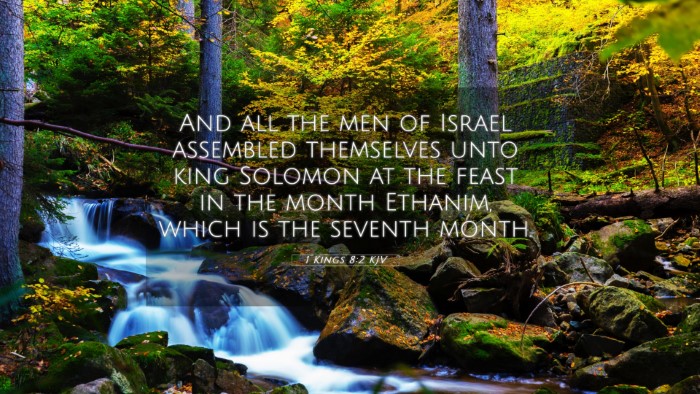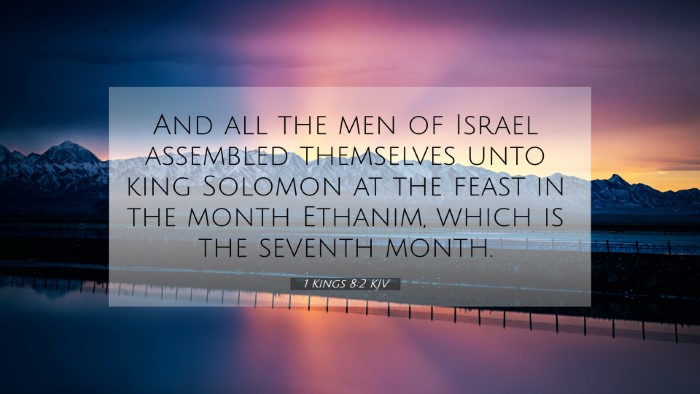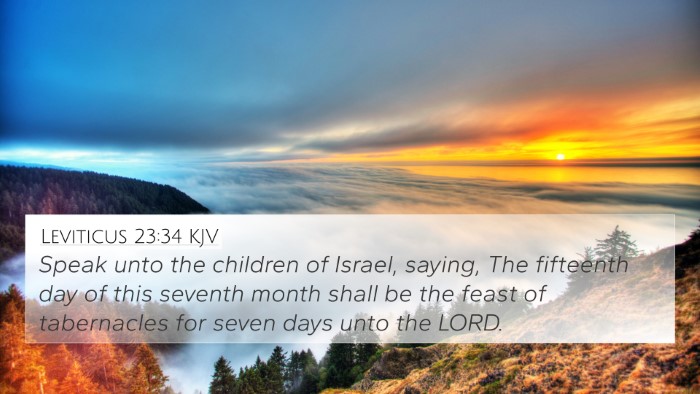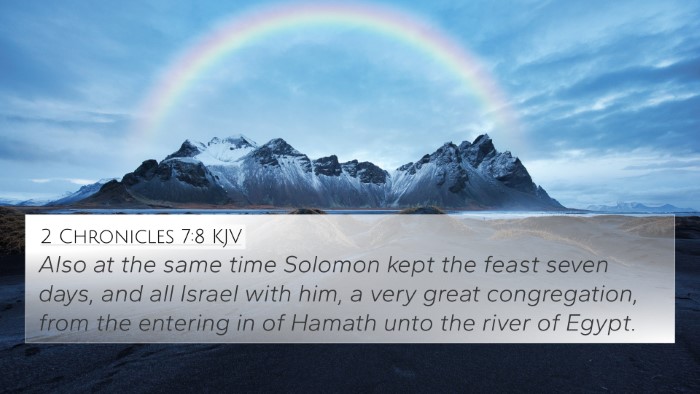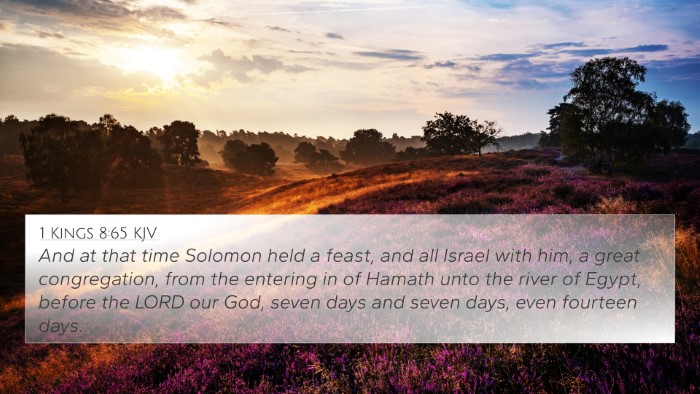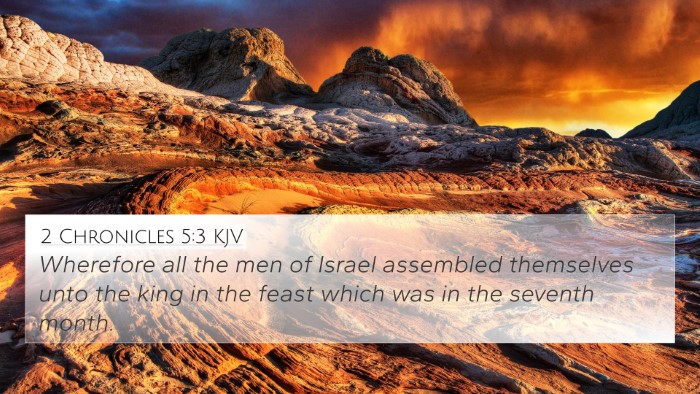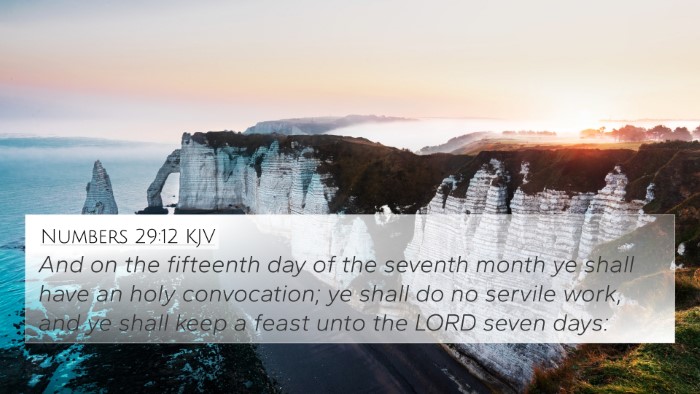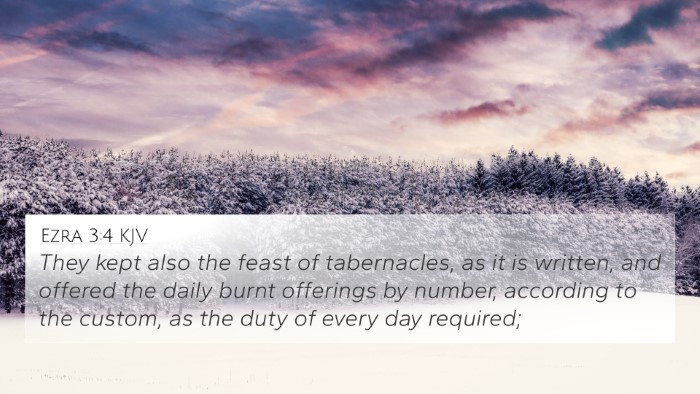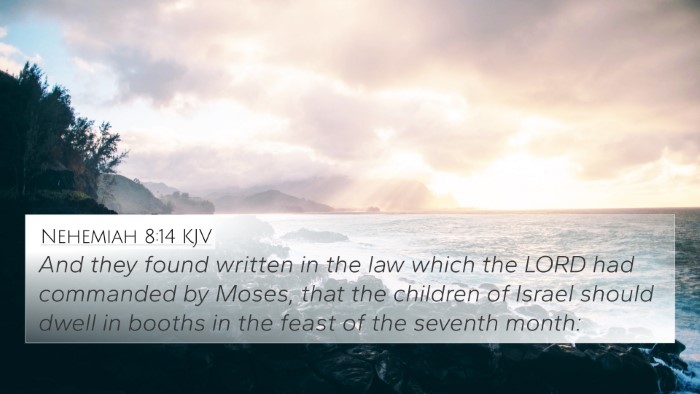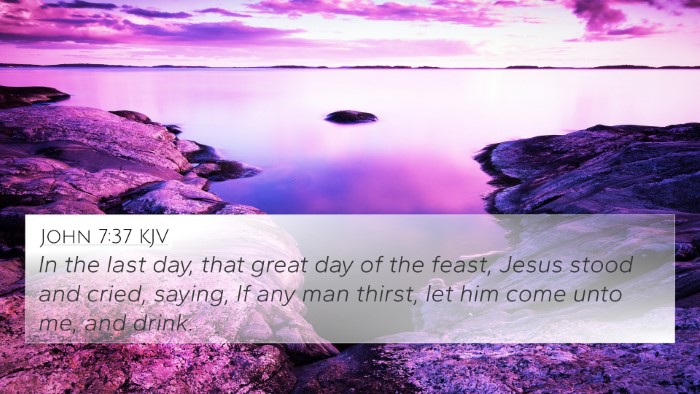Understanding 1 Kings 8:2
1 Kings 8:2 states, "And all the men of Israel assembled themselves unto King Solomon at the feast in the month Ethanim, which is the seventh month." This verse marks a pivotal moment in the history of Israel as the people come together for a significant religious event.
Commentary Insights
Matthew Henry's Commentary
According to Matthew Henry, this passage highlights the unity among the Israelites as they gather to celebrate the Feast of Tabernacles. It reflects the joyous occasion of worship and the acknowledgment of God’s presence among His people. This assembly is significant as it signifies the completion of Solomon’s temple and the acknowledgment of God’s faithfulness.
Albert Barnes' Notes
Albert Barnes emphasizes the importance of the timing of the feast in the seventh month, known as Ethanim, which correlates with the harvest season. This context is essential as it portrays the agricultural life of the Israelites and their dependence on God for provision. Barnes notes that gatherings during this time were vital for commemorating God’s blessings and recalling His mercy.
Adam Clarke's Commentary
Adam Clarke provides insight into the spiritual aspect of the gathering. He notes that this event represents not only physical unity but also a spiritual alignment under the reign of Solomon. The assembly underscores the recognition of Solomon’s role as a leader chosen by God, and it symbolizes a collective commitment to uphold the covenant with the Lord.
Thematic Connections
This verse can be understood through various biblical connections, illustrating the themes of unity, worship, and divine presence throughout scripture.
- Feast of Tabernacles: This feast serves as a reminder of God’s provision during Israel's wilderness journey (Leviticus 23:34).
- God's Faithfulness: The gathering signifies God’s faithfulness in fulfilling His promises (Deuteronomy 16:15).
- Purity in Worship: The importance of attending these feasts reflects the necessity of purity in worship (Exodus 23:17).
- Gathering of the People: The unity of Israel is echoed in many other scriptures, emphasizing God’s desire for His people to come together (Psalm 122:1).
- The Role of Leadership: Solomon is established as a leader under God’s authority (1 Chronicles 29:22).
- Divine Presence: The temple's dedication is a precursor to the acknowledgment of God’s dwelling among His people (2 Chronicles 5:13-14).
- Harvest Celebration: The agricultural thanksgiving is mirrored in the theme of gratitude found throughout the Psalms (Psalm 107:22).
Cross-Referencing and Biblical Parallels
In studying 1 Kings 8:2, several cross-references and parallels emerge, enriching the understanding of this verse:
- Exodus 34:22: The requirement for gatherings during the feast seasons, reinforcing communal worship.
- Deuteronomy 16:16: The mandate for all males to appear before the Lord during these significant feasts.
- 2 Chronicles 8:13: The religious observance under Solomon’s reign illustrates continuity of worship practices.
- Matthew 18:20: The principle of God’s presence in gatherings aligns with the communal gathering for worship.
- Hebrews 10:25: The encouragement for believers not to forsake assembling, resonating with the importance of community worship.
- Acts 2:1: The coming together of believers for the purpose of prayer and thanksgiving parallels this Old Testament gathering.
- Psalm 133:1: The blessing of unity among brethren is a reiteration of the collective gathering in worship.
Conclusion
The assembly of the Israelites in 1 Kings 8:2 around Solomon during the Feast of Tabernacles encapsulates major themes of worship, unity, and divine faithfulness. By cross-referencing other scriptural passages, we can gain deeper insights into these themes, encouraging a comprehensive understanding of God’s presence and sovereignty in the lives of His people.
Learning Tools for Bible Study
For those delving deeper into biblical studies, utilizing tools for Bible cross-referencing, such as a Bible concordance or a Bible cross-reference guide, can enhance one's understanding of scriptural connections. Methods like cross-reference Bible study can illuminate profound truths about God's character and His dealings with humanity.
